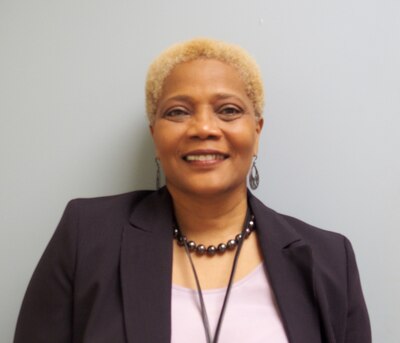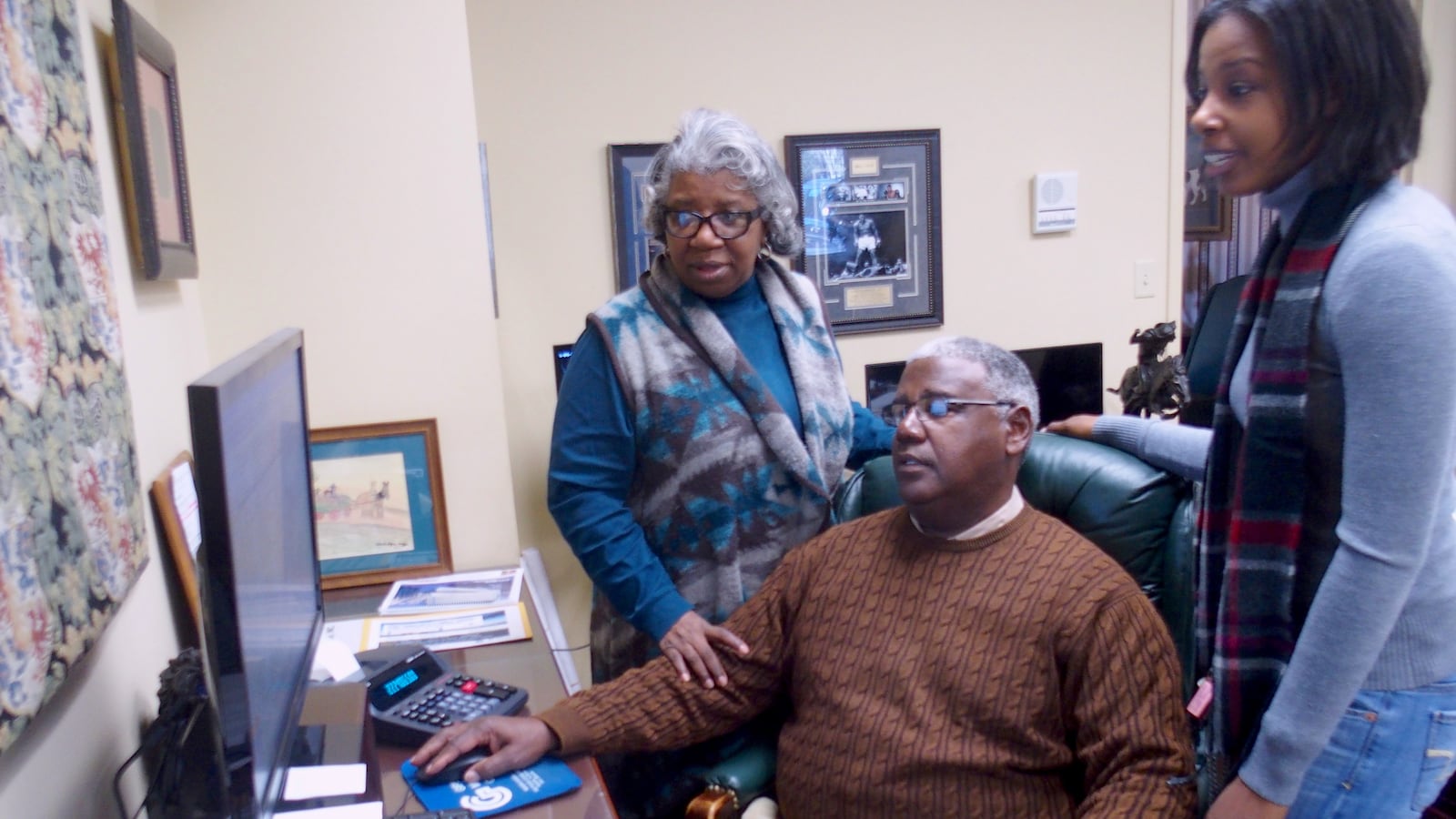Winston Gipson used to do up to $10 million of work annually for Memphis City Schools. The construction and mechanical contracts were so steady, he recalls, that his minority-owned family business employed up to 200 people at its peak in the early 2000s.
Looking back, Gipson says being able to build schools was key to breaking through in the private sector.
“When we got contracts in the private sector, it’s because we did the projects in the public sector,” said Gipson, who started Gipson Mechanical Contractors with his wife in 1983. “That allowed us to go to the private sector and say ‘Look what we’ve done.’”
But that work has become increasingly scarce over the years for him and many other minorities and women. The program designed to address contract disparities in Memphis City Schools was cut during its 2013 merger with Shelby County Schools.
A recent study found that a third of qualified local companies are owned by white women and people of color, but such businesses were awarded just 15 percent of the contracts for Shelby County Schools in the last five years.
It was even worse for black-owned construction companies, like Gipson’s, which make up more than a third of the local industry but were awarded less than 1 percent of contracts.
The disparity is being spotlighted as the city prepares to mark the 50th anniversary of the death of civil rights leader Martin Luther King Jr., who was assassinated in Memphis while trying to fight for the rights of minority workers in 1968.
On Jan. 25, Chalkbeat will co-host a panel discussion on how Shelby County Schools, as one of the city’s largest employers, can be an economic driver for women- and black-owned businesses. Called “Show Me The Money: The Education Edition,” the evening event will be held at Freedom Preparatory Academy’s new Whitehaven campus in conjunction with MLK50 Justice Through Journalism and High Ground News.
Community leaders say school-related business contracts are a matter of equity, but also an education strategy. Since poverty is a crucial factor in why many Memphis students fall behind in school, the lack of job opportunities for their parents must be part of the discussion, they say.
The district already is taking steps to improve its record on minority contracting, starting with setting new goals and resurrecting the city district’s hiring program.
Big district, big opportunity
Shelby County Schools is Tennessee’s largest district. With an annual budget of more than $1 billion, it awards $314 million in business contracts.
An otherwise dismal 1994 study of local government contract spending highlighted Memphis City Schools’ program to increase participation of historically marginalized businesses as one of the county’s most diverse, though some areas were cited as needing improvement. The same study criticized the former county school system, which lacked such a program, for its dearth of contracts with Minority and Women Business Enterprises (MWBEs).
But when the two districts merged in 2013, the program in Memphis City Schools disappeared.
“We had to cut, cut, cut,” said school board member Teresa Jones. “We were trying to stay alive as a district. We did not focus as we should have.”
Jones, a former school board chairwoman, said it’s time to revisit the things that were working before the merger. “We have to get back,” she said, “to make sure there’s equity, opportunity, access, and an atmosphere that promotes business with Shelby County Schools.”
District and community leaders say the consolidated district has lost its ability to develop relationships with qualified minority-owned businesses.
“There was an infrastructure where African-Americans felt comfortable enough approaching the school system” for work, said Melvin Jones, CEO of Memphis Business Contracting Consortium, a black business advocacy group formed in 2015. “There was trust. During the merger, they dropped the infrastructure.”

Without the outreach, “we’re seeing the same vendors,” said Brenda Allen, hired last summer as procurement director for Shelby County Schools after working in Maryland’s Prince George County Public Schools, where she oversaw a diversity contracting program.
“We’re not marketing the district like we should,” she told school board members in November.
Shelby County Schools is not alone in disproportionately hiring white and male-owned companies for public business. Just 3 percent of all revenue generated in Memphis goes to firms owned by non-white people, even though people of color make up 72 percent of the city’s population, according to a 2016 report by the Mid-South Minority Business Council Continuum.
Not coincidentally, district and community leaders say, Memphis has the highest rate of young adults who aren’t working or in college, and the highest poverty rate among the nation’s major metropolitan areas. About 60 percent of students in Shelby County Schools live in poverty and all but three of the district’s schools qualify for federal funding for schools serving high-poverty neighborhoods.
Jozelle Luster Booker, the CEO of the MMBC Continuum, developed an equity contracting program for the city utility company following the 1994 study that was so critical of the city. The program funneled half a billion dollars to minority-owned businesses — an example of how government policies can promote equitable contracting, and grow businesses too.
“When that happens, you could basically change the socioeconomic conditions of that community, which impacts learning,” Booker said. “They’re ready to learn when they come to school.”
Shelby County Schools plans to hire a consulting firm to help develop a procurement outreach program and set diversity goals for its contractors and subcontractors. The program will launch in July, and Allen plans to hire three people to oversee it.

The district also is part of a city-led group that provides a common certification process for businesses seeking contracts with city and county governments, the airport, the transit authority, and Memphis Light Gas & Water. The city’s office of business diversity and compliance also has a list of qualified minority businesses, offers free business development courses, and accepts referrals from other government entities to reduce redundancy.
“As you spend public dollars, you always want those dollars to be spent in your neighborhoods because that money comes back into your economy,” Allen said. “When people have jobs, you should see crime go down. You should see more people wanting to do business in the community if you have a good program.”
Leveling the playing field
In order for it to work, there has to be consistent reports, measures and, most of all, accountability, according to Janice Banks, CEO of Small Planet Works, who helped the district with its disparity study.
Gipson agrees.
A wall of his second-floor Memphis office is lined with photos of some of his most significant projects during his 35 years of business, including a multimillion-dollar mechanical contract with AutoZone when the Memphis-based car part company moved its headquarters downtown in the early 2000s.
The work was made possible, he said, because of public sector jobs like constructing nine schools under Memphis City Schools. But that work evaporated after the merger. “It’s mostly been Caucasian companies that do the work (now),” he said. “It’d be one thing if you didn’t have anyone qualified to do it.”
Shelby County Schools will have to show commitment, he said, if it wants to level the playing field.
“You have the mechanism in place to make a difference,” he said. “Now do you make a difference with that mechanism or do you just walk around, beat your chest, and say we have a disparity study and let things run the way they’ve been running?”
“If you don’t make it happen, it will not happen,” he said.

